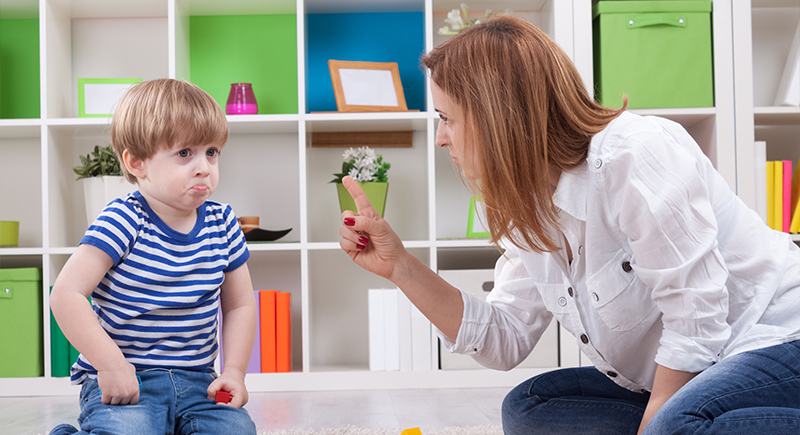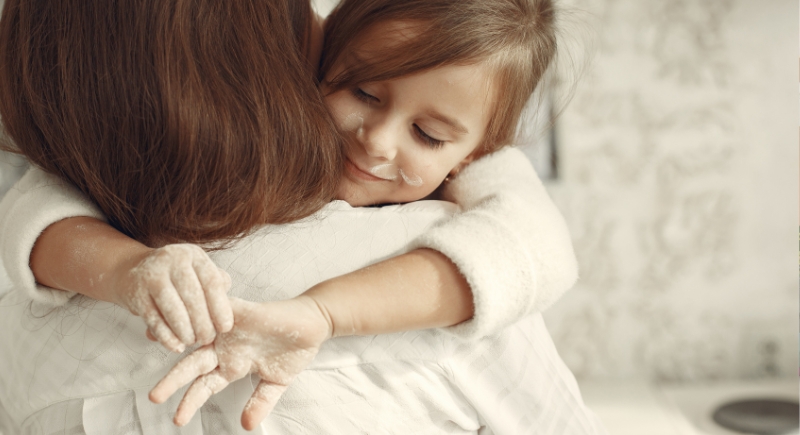19 Parenting Mistakes That Feel Harmless But Stick With Kids for Life
We all mess up — and most of the time, it’s not out of neglect but love and exhaustion. However, some small-seeming parenting habits can quietly shape a child’s worldview. Let’s look at the ones that tend to linger, long after childhood fades.
Brushing Off Their Feelings

Credit: Canva
When a child says, “I’m scared,” and you say, “Don’t be silly,” it might seem comforting, but it teaches them to doubt their emotional reality. Over time, they’ll stop sharing, not because they’re okay, but because they learned their feelings won’t be heard or taken seriously. This subtle invalidation can stay with them for years. Empathy, on the other hand, builds trust and opens the door to healthy emotional expression.
Comparing Them to Others

Credit: iStockphoto
“You should be more like your cousin” might be meant as motivation, but it plants seeds of inadequacy. Children start measuring their worth against others instead of growing into themselves. It chips away at their confidence and leaves them chasing approval instead of finding peace in who they are. We all want the best for our kids, but the best version of them is uniquely theirs.
Yelling Instead of Explaining

Credit: Canva
Everyone loses it sometimes — especially on zero sleep and max stress. But when yelling becomes the norm, kids begin to associate emotion with danger. They don’t learn how to resolve conflict; they learn to fear it. What sticks isn’t the lesson but the fear. Instead of yelling, try a calm explanation. It doesn’t always feel like an immediate win, but it teaches them emotional regulation — and that’s a life skill.
Not Owning Your Mistakes

Credit: Canva
Ever snapped at your kid and pretended it didn’t happen? Happens. But when we don’t apologize, we teach them that power excuses poor behavior. A simple “I messed up” goes a long way. It models accountability and shows them that grown-ups aren’t perfect — and that’s okay too. Because let’s face it: no one is.
Overpraising Everything

Credit: iStockphoto
Telling them they’re amazing for tying their shoes might feel encouraging, but too much generic praise creates pressure. They start chasing approval instead of effort. Worse, they might not trust compliments anymore. Be specific. “You focused really hard on that!” sticks better and teaches them to value persistence over perfection. Praising their effort is much more empowering than praising an outcome.
Using Guilt to Control

Credit: iStockphoto
“After everything I do for you…” It slips out. We’ve all been there. But emotional debt teaches them that love has strings. It wires them to overextend in relationships later, trying to earn affection. Gratitude shouldn’t come from shame — it grows from witnessing love given freely, not grudgingly. Kids need to feel like they belong, not like they’re constantly paying for your love.
Minimizing Their Problems

Credit: Canva
It’s tempting to say “You’ll be fine” when they’re crying over a friend not sharing. But to them, that moment is everything. Dismissing it teaches them to hide pain. Instead, sit with it. You don’t need a solution — just presence. Let them process their emotions in their own time. Feeling heard can make all the difference, and it teaches them to respect their own emotional world.
Making Love Feel Conditional

Credit: Canva
Praising only when they’re polite or obedient can quietly link affection to performance. Kids begin to wonder: “Am I lovable when I’m angry? Loud? Messy?” The answer should be yes — always. Unconditional love doesn’t mean zero boundaries. It means your love shows up even when they’re falling apart. When they know they’re loved regardless of their behavior, they feel secure in their relationship with you.
Shaming in Public

Credit: iStockphoto
Correcting behavior in front of others might stop it fast— but at a cost. The embarrassment lingers. They might obey out of fear rather than understanding. Discipline should never feel like public humiliation. A private correction with dignity does more for learning — and their long-term self-worth. Remember, we’re all human, and kids need to feel respected as individuals, not public examples of “what not to do.”
Assuming They’re Not Paying Attention

Credit: Canva
Kids are sponges — not just for words but moods, tones, and silences. That conversation you thought they didn’t hear? They did. That sigh? They felt it. Dismissing their awareness makes them feel invisible. Respecting their perception helps build emotional intelligence — and makes them more likely to share later. Sometimes, the biggest lessons they learn are from the smallest things we overlook.
Rescuing Them from Every Failure

Credit: iStockphoto
It’s hard to watch them struggle. We want to swoop in and save the day. But failure teaches grit. When we fix everything, we rob them of resilience. Let them fall safely. Let them try again. Being there with them is better than clearing the path in front of them. Failure isn’t the enemy — it’s an opportunity to learn and grow.
Labeling Them Too Early

Credit: pexels
“She’s the bossy one.” “He’s our little worrier.” Harmless? Not really. Labels become scripts kids internalize. Even positive ones — like “the smart one” — can create pressure or trap them in a role. Describe behaviors, not identities. Let them discover who they are, not just who we say they are. They need the space to grow and evolve without feeling boxed in.
Projecting Our Fears Onto Them

Credit: Getty Images
You hated public speaking, so you shield them from it. But maybe they’d love the stage. We all carry emotional residue from our childhoods, but when we pass that onto our kids, we limit them. They deserve the chance to write their own story — not relive our old chapters. Let them take risks. Let them define themselves on their own terms.
Dismissing Mental Health

Credit: Getty Images
Mood swings, quiet spells, or tantrums aren’t always “just a phase.” Sometimes they’re signals. Waiting too long or brushing them off can delay the support they might desperately need. Early acknowledgment normalizes emotional care. Therapy shouldn’t be a last resort — it should be as normal as going to the dentist. The more we normalize mental health, the more empowered our kids will be to care for their own.
Demanding Emotional Control You Don’t Model

Credit: Canva
Saying “Use your words” while yelling your own — yeah, guilty. Kids mimic us more than they listen to us. If we shame them for expressing emotions we haven’t learned to manage, we send mixed signals. Modeling calmness, even when we’re struggling, gives them a blueprint they can actually follow. If we expect them to manage their emotions, we need to show them how.
Forcing Your Dreams On Them

Credit: iStockphoto
You wanted to be a dancer, so now they’re in ballet — but maybe they don’t like it. Living through our kids doesn’t help them grow; it stunts them. They’re not a redo. They’re an original. Let them chase what lights them up — even if it looks nothing like your dream. It’s hard to step aside, but their future is theirs to build, not ours to control.
Only Saying “I Love You” When Things Go Right

Credit: iStockphoto
Celebrating the good moments is easy. But if “I love you” only shows up after an achievement or good behavior, it starts to feel earned, not given. Say it when they’re struggling. Say it when they mess up. Especially then. That’s when it becomes a truth they carry for life. Love should never feel like a reward; it should feel like a constant, no matter the circumstance.
Using “Always” or “Never” Statements

Credit: iStockphoto
Saying things like “You always forget” or “You never listen” comes out fast in stressful moments. Still, kids hear it as a fixed label, not as feedback about a single action. Over time, those words can shape how they see themselves. Instead of focusing on one behavior, they start believing something is wrong with who they are.
Prioritizing “Busy-ness” Over Connection

Credit: iStockphoto
Life gets packed with work and endless errands, so saying “I’m busy” can become automatic. Kids may stop asking for attention and start assuming they are low on the priority list. What stays with them is not the schedule but the feeling of being secondary. Small daily moments of focus mean more than big plans.